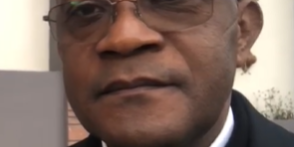HAITI
“For about four years, our country has been experiencing one of the longest and deadliest socio-political and security crises in its entire history.” This is how the bishops of Haiti have expressed, in a signed statement September 14, in the face of apathy, abandonment and violation of the rights of the population.
Among the signatories include President of the Episcopal Conference of Haiti (CEH), Metropolitan Archbishop Launay Saturne of Cap-Haïtien, and Cardinal Chibly Langlois.
“We live with bitterness and pain, the suffering of our people caused by the blind violence of heavily armed bandits, the cynicism and indifference of political leaders, and the hesitations of the international community,” they denounced.
For this reason, “the cry of our people, affected to the depths, resonates in our ears and in our hearts as shepherds,” because “this people only ask to live in dignity and peace.”
Haiti, say the prelates, takes up the cry of Christ on the cross: “My God, my God, why have you abandoned me?”
Crisis to the core
Adn Celam reported it is a crisis in all areas: social, political, economic, cultural, which affects everyone “to the core” without distinction. “The signs of decline are evident” and the State has even “lost control of the national territory”, the statement said.
Organised crime has spread to “all our departments, all our Dioceses and almost all important cities in the country”. “The metropolitan region of Port-au-Prince is almost entirely controlled by armed bandits, organised into gangs.”
They added, “The population is hostage to the ruthless violence of gangs and their allies; It is subjected to the inaction and complicit silence of the government. Here and there in the country a low-intensity war is being waged against the peaceful and unarmed population.”
The prelates consider it to be a war, while “we see the thick shadows of violence advancing in Haiti at the service of small interests of power, greed and division.”
These sponsored crimes against a defenseless population are accompanied, among other things, by attacks against churches and places of worship of different religions, which can no longer function, they point out.
Faced with the barbarism that has overtaken the country, they ask: “What should we do? What should we do as churches and people, desperate to change the situation and prevent armed gangs from killing us, massacring us all? What should we do so that our country regains peace and the people, serenity?”
They assured that “becoming a people requires a constant process in which each new generation is committed. It is slow and arduous work that requires letting oneself integrate and learning to do it until developing a culture of encounter in multifaceted harmony.”
The prelates call for action, not to be indifferent, because “the solution is not passivity. We believe that it is possible to transform these dehumanising conflicts into links of a new process.”
Without a doubt, “this requires courage on our part. And we have already demonstrated it when it was necessary to achieve independence. Blessed are those who work for peace!”
Stop this genocide
“Wherever we are, even in the most remote corners, our solidarity, our closeness, our prayer, our exhortations as citizens and as a people can contribute,” they said.
They have invited the priests of all the parishes of the ten dioceses of the country, the religious and the lay faithful to organise a true chain of prayers for freedom, for the liberation of the country from the influence and violence of the gangs.
The Church leaders also demand that the public powers and other sectors of the nation cease their complicity and support for the armed gangs, that the Police become an ally of the population, and that the political-social dialogue be built based on the real needs of the people.


